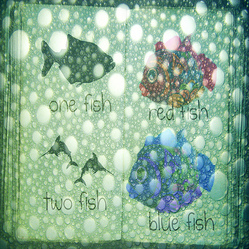 Symphony brass out on strike / Alison R. The oft-quoted Greek philosopher Heraclitus said: “If you do not expect the unexpected, you will never find it, for it is not to be reached by search or trail.” I don’t get it exactly, but that’s okay. I understand it enough to recognize that my life has been full of unexpected moments, both big and small. Just last week, I can’t say I expected to hear a classical repertoire performed by members of the San Francisco Symphony Orchestra’s brass section at Patricia’s Green on Hayes Street. Striking symphony members took to the street to meet, greet and explain. Music so unexpected and delightful that I sat and listened until they stopped. On a slightly different note, I hadn’t planned to participate in Zen Master Norman Fischer’s workshop Training in Compassion on a recent Saturday at the Zen Center. I imagined myself still in the “me” stages of meditation. I didn’t expect to be open to concentrating on anyone else. But my Zen practice teacher insisted this was an important place to be and the right time to be there. One takes seriously these directives. I had not expected to be so profoundly moved by this talk and workshop on training the mind, nor to buy Fischer’s book, nor to be continuously reading it. I hadn’t expected to be this wholehearted about meditation for the welfare of others. Yet unexpectedly I got it. No separation between self and others means no fixed self to speak of, let alone to improve upon; focusing on others does for me as much as it does for everyone. We are all one. I love Norman Fischer’s book. He writes in the forward: “Compassion and resilience…can become the way we are and live on a daily basis. We can train our minds. We are not stuck with our fearful, habitual, self-centered ways of seeing and feeling.” And then he shows the reader how. I love that he teaches from an old Tibetan text he has modernized. Lojong is how Tibetan Buddhists and Fischer name the practice; Pema Chodron teaches it as Tonglen. Fischer’s book covers seven points and 59 slogans for generating compassion and resilience. These bite-sized wisdoms are to be contemplated on the cushion, memorized in any order or the order in which they are presented. They are a little like bumper stickers for awakening compassion—A kind of “Honk if you love Jesus” but more about radiating kindness than asking for validation that a particular wise man matters. Going into this day with Norman Fischer I did not expect that I would want to breathe in other’s pain for the sake of their wellbeing and breathe out what I feel would bring them relief and happiness. Doing this practice meant I had to face my resistance to experiencing pain. I went to the workshop tired by my own pain; I had no interest in adding other’s pain to my own. Yet by the end of the day, I found unexpected space in my sitting practice to experience and alleviate pain for others. Buddhist teacher Pema Chodron explains the purpose of this kind of meditation: “The tonglen practice is a method for connecting with suffering —ours and that which is all around us— everywhere we go. It is a method for overcoming fear of suffering and for dissolving the tightness of our heart. Primarily it is a method for awakening the compassion that is inherent in all of us, no matter how cruel or cold we might seem to be.” I did not expect that after describing my experience at the Zen center, my Wednesday night Small Group Ministry group at the Unitarian Universalist Church would want to practice Lojong as part of our service project. As we sit together, each participant will breath in suffering associated with what matters to them such as breast cancer or world hunger and breath out release from that suffering. I was encouraged and grateful to see my experience begin to ripple out. Expect the unexpected.
 Nelson the pit bull puppy / Guy R. Meet Nelson the pit bull puppy. He is my most recent reason for being caught in the grip of self-aversion. He doesn’t belong to me; he is a new member of the Connecticut part of my family. I lay my dilemma at his paws because I can’t look at him and not love him. And sadly, looking and loving have made me unhappy whereas were I less susceptible to tying myself in knots, I might simply have been happy at seeing his sweet face and that would have been the end of that.
But I didn’t just look at Nelson and smile. I knotted up and accused myself of lazy love, which in my mind is the opposite of energetic love. The latter means I accompany my pit bull puppy to obedience school, get him his shots, and tailor my workout regimen so as to be strong enough to rein him in when he does his doggy aggressive stuff. Innumerable requirements if I am to have a meaningful relationship with a Nelson of my own.
Undoubtedly older women for whom dog ownership is a given will have lots of good advice for me as to what breed of dog would suit me better, considering my living arrangement and the nature of my complaints. My advice is save the advice as I will surely parse a “should” and feel increased shame for professing to love animals yet not embracing the reality of caring for one.
You might ask what is the problem. Get on with it. So you are conflicted. That is part of the human condition. It happens all the time. And yet these conflicting feelings have held up my regular blog posting. The dilemma has never really been can I have a dog? Or even should I want to have a dog?
The real problem is my old friend, self-aversion. I would like myself better if I were a person who had the energy for a dog. I say I adore dogs and certainly my heart went out to Nelson, the pit bull puppy. This irritation at wanting and not wanting spilled over into consternation at missing my self-imposed Monday blog post deadline, which had already slipped to Tuesday. Finally, I asked myself if these self-limiting expectations are good for anything. They certainly don’t bring happiness; whereas all the talking I do to myself with an “impure mind” insures that “suffering follows as the wheel of the cart follows the foot of the ox.”
When I am in the grasp of self-aversion, someone else has to point out the uselessness of self-hate, gently of course. And someone else must remind me that the world continues if my blog isn’t posted by mid-day Monday.
Thanks to my friends for guiding me safely into hindsight, where I can note with some spaciousness that I had been sidetracked by “Hindrances”: Toxic doubt and the Ruthless Inner Critic. Meanwhile I have learned from my son that the new puppy, Nelson, and the original pit bull, Otto, are lying down together. I cheer these two creatures at peace.
 Feeding / Keith Park Think of it! A second chance at love, of being nurtured at this time of life and practically in the same zip code! Feels like a miracle. It is certainly grace and a cause for gratitude. I can tell my story of why after two years I again feel love for and from Corky. She has her own story.
During the two years Corky and I were apart, we mostly avoided each other or approached each other warily. At times we probably badmouthed the other to sympathetic friends. And yet we sort of stayed in touch.
I will keep the backstory short. Two years ago Corky and I were at a dinner with friends on Valentines Day and each couple talked about their love. We skipped over the subject. The following night, we went to a movie and after the movie, she bought me dinner when suddenly I behaved badly. Mild violence ensued and that was the end. The twosome called Corky and Allie came apart.
Then other things impacted me — a broken marriage wherein my oldest son went to the East Coast. A daughter-in-law struck and killed by a car, leaving my youngest son distraught, my three-year old granddaughter composing emails to her mommy in heaven. One son had moved on to a new life, leaving behind grief. The other shut down and was unreachable in his grief. Both my parenting and partnering selves felt broken. Along with feelings of remorse and anger, compassion and bewilderment, I perceived loss as failure.
Experiencing such pain, I went into therapy to be “fixed”. Of course, fixing was never a real option; rather, therapist Jennifer pointed me to John Welwood and his Perfect Love, Imperfect Relationships: Healing the Wounds of the Heart. Over the ensuing year, under Jennifer’s kind eye, I befriended my grief, ceased to fight nor doubt the worth of the weeping. Fortuitously, my friend Kate shared Buddhist teacher Tara Brach’s podcasts and blogs. Tara guided me toward the possibility of gentleness toward the self. Then I gobbled up dharma talks, Tara’s wisdom replacing the yuck of my own mentation.
Tara’s talking led to meditation and with sitting came silence and equanimity. Proverbial mountains became proverbial molehills. Silence in just sitting gave me access to “the sacred pause,” that brief moment before a lit limbic system sends out the fight or flight impulse. It is the moment for the gentler prefrontal cortex to come to kindness and reason. Studying Buddhism brought me to a Zen teacher to guide my meditation practice. She too had known grief in her life and could remind me that my suffering was “the suffering” and we are all in it together.
Though I did go into therapy with Jennifer to work on being in relationship, that was not the outcome. Ultimately recognizing my defenses and strategies became the desired goal. Uncovering my Buddha Nature, you could say. My hope was and is to accept who I am and not regret who I am not.
And despite what I did or didn’t think could or should happen between Corky and me, books about love say that in relationships when one person changes, the other’s changing is not a requirement because the source of love is in oneself. Meanwhile, all credit to Corky for chiseling down her own mountains to molehills her way. As for me, it has been powerful to acknowledge my part in the unhappiness that marred our five-year relationship. There were so many ways I had not nurtured her.
All the time we were together, I knew that the majority of problems between us were her fault. I thought if only she understood me, listened to me, gave me what I needed, etc. etc. Of course, I was mistaken. Now with two years of slow growth and gentle moving toward each other, I find us both to be vulnerable and affectionate women capable of giving and receiving love. And I said to her and she liked my saying so: “You are giving me everything I have ever wanted in a relationship.”
Imagine that.
 Dr. Seuss Fell in the Aquarium/Garland Cannon I really needed to practice self-compassion after having spent Friday through Sunday with my five-year-old granddaughter whose first words to me were “You’re not my real grammy. “My real grammy lives in Colorado.”
Could failing to be the "real grammy" put me at a disadvantage with my little cherub? Not being a “real grammy” might mean that rules for getting along and going along wouldn’t apply to me. This little girl and her Grandma Alzie might need to fashion our own rules—in a hurry and quietly.
Working things out with little or no disturbance were explicit parts of my responsibility on this visit. My son had asked me to come to Los Osos to watch our beloved girl so he could sleep, and Miss E’s regular sitter, Tracy, could take a much-needed break. Everyone is exhausted because daddy has been temporarily working a night shift and though it is winding down and he will be back to full time parenting, he still has a few days to go.
I discovered right away that a child makes rules for the benefit of the child. The child wants what the child wants. Child rules can be as simple as keeping the ace of diamonds lost fairly according to the rules of the card game “Roar.” A child can refuse to budge from the computer when grandma says three hours of animated games in Daddy’s room is enough.
Daddy would hope grammy would be the rule maker and enforcer, that she would take charge of the child swiftly and silently, relocating her, preferably downstairs. Dragging her off the chair kicking and screaming is not an adult option. Luckily, Daddy’s need to sleep will soon be over. He is, after all, the authority figure who issues time outs and puts the iPad out of reach.
Sadly, on this visit I did not have the clout to convince the child to follow my rules without an argument. More than once, daddy did have to wake up, get up, and assert his authority.
Finally, when it was Sunday afternoon and I was ready to head back to San Francisco, I gave in to a sprinkle of self-pitying tears and a few rips of self-criticism. Why had my sweet little girl not said goodbye to me as I bustled my belongings out the door? Had my inability to enforce rules made me a grammy failure? Would the Colorado grammy have done a better job? Would she have made better breakfasts? My little charge had eaten eggs I fried and the toast with the butter and jam. She had not found fault with the microwave popcorn we munched as we watched Toy Story 2 twice and El Dorado once. Not to compare myself to the Colorado grammy, but I did wonder if on her visits she plays multiple games of Roar? Would she have slept in the bed with the little girl and her stuffed toys? Would she have read the requisite two books at bedtime and listened to the child read One Fish, Two Fish, Red Fish, Blue Fish?
Exhausted from the drive home, I went to bed, confused and disappointed that my visit had not made life easier for this dear son and his little girl. The next morning I turned for perspective to my friend, Kate. She pointed out that both my son and I had expectations about the outcome of the visit. And this hadn’t proved skillful. On the way home from Kate’s I listened to a self-compassion podcast. That helped. With self-compassion warming me, I thanked my inner critic for trying to steer me into being the best grammy I could be, suggesting to her that less harsh rhetoric would still be effective.
Now I am rethinking my role, seeing myself a rule-making, boundary setting grammy. A lot like the Colorado grammy. At about the time I am feeling at peace, my exhausted son calls to be sure I have made it safely back to San Francisco. He suggests that for smoother future forays, he will “franchise my visits.” I imagine from now on each visit will have a set agenda with designated spots in and about the estuary, park, school grounds and beach where I will be permitted to go on foot. There will be a list of equipment for the child such as helmets, bikes, scooters, skateboards from which I will choose, depending on the terrain of the spot to which we are headed. I am not nor will not be allowed to drive the child anywhere.
“Franchising visits” makes me laugh. I appreciate his effort and don’t bother telling him I had already planned to be a more consistent grammy who sets clear boundaries. As for him, it is too late to redo my parenting.
|




 RSS Feed
RSS Feed